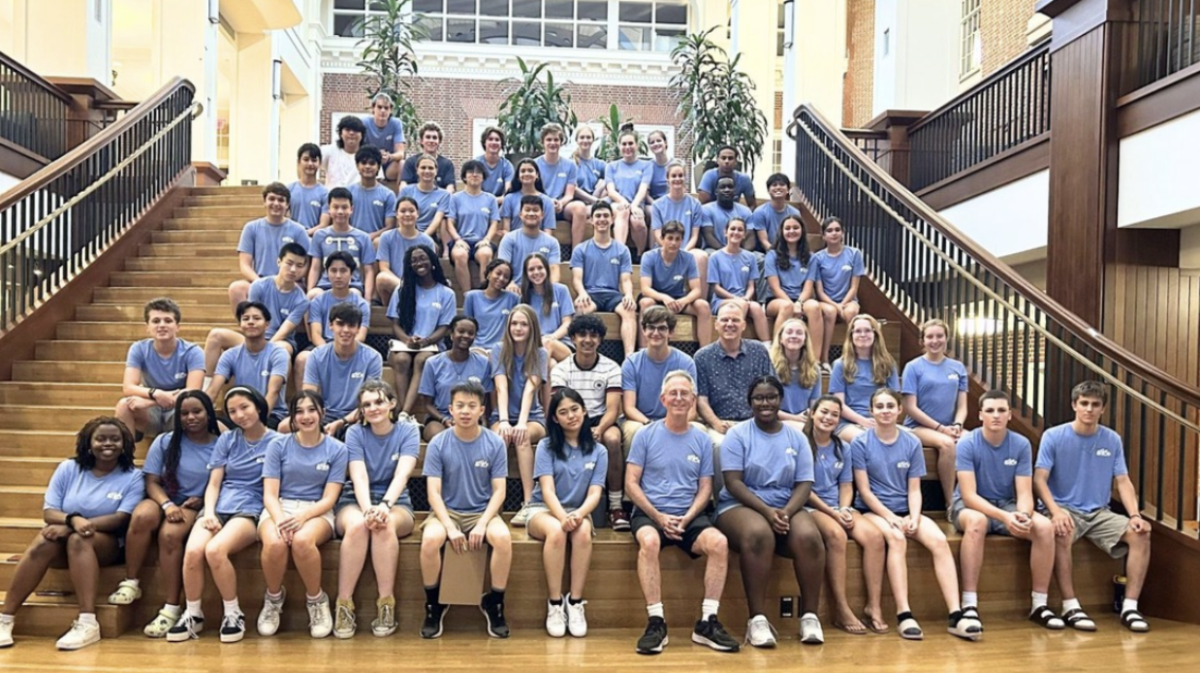The prospect of summer vacation at the end of a rewarding but exhausting school year set the Groton community abuzz with excitement after months of hard work. Yet in just two short weeks, a record-high number of rising Fourth Formers found themselves returning to campus for a month of diligent study and academic preparation for the transition to Upper School. Despite the upward trend in participation, we must recognize both the pros and cons of GRACE and the significance of a summer spent in the classroom after a year of hard work.
Exchanging a precious summer month to further one’s academics at GRACE was not an easy decision. Learning a new subject or improving at a challenging subject in just four weeks took hard work, dedication, and patience. The Groton workload is notorious for its intensity, and committing to it during an intended break does not best suit everyone. Despite the frequently discussed mentality of “GRACE not Grades,” a slogan that was even written on the back of T-shirts distributed at the beginning of the program, the lack of grades did little to alleviate stress. Most classes, especially B courses that placed students on an accelerated track, gave heavy workloads and frequent assessments, which put a lot of pressure on scholars to succeed.
Attending GRACE meant trading days spent relaxing at home or enjoying time with friends for those spent in the classroom. During the school year, Groton students adopt a lifestyle that does not allow them to spend a lot of time with their loved ones back home, making summer break particularly valuable. Summer vacation is also intended to be a reprieve from students’ packed schedules, which can generate anxiety. The GRACE program takes away from this valuable time to recuperate.
Despite this, GRACE does have many upsides. Academically, getting to focus on one or two specific subjects is a style of learning that is helpful and productive for many. GRACE attendee Rose Lee ’27 noted that “Focusing on two subjects really helped me understand the material on a more meaningful level and gave me more mind space to explore the nuances of each topic.” However, what made those four weeks truly special was the opportunity to get to know formmates and community members on a more personal level. One and a half to three hours of class time per day gave students the chance to connect with their teachers. In the hours after the school day, many faculty-led activities were offered. For example, students could spend their afternoons cooking at GRACE Director Cort Pomeroy’s house, swimming in the pool to escape the sweltering heat, paddle-boarding on the Nashua River, or participating in GRACE Olympic competitions. Weekend excursions, including trips to Kimball Farm, a movie theater, and the Zoar Outdoor overnight trip, further enabled students to connect with each other in informal, non-academic settings.
For new students, GRACE offered a great opportunity to acclimate before the start of the official school year. Incoming student Ada Mertz ’27 felt as though GRACE was helpful to her as a new student, saying that “I loved having the opportunity to meet my classmates and teachers before the school year began as well as having the opportunity to preview some of the material that I will encounter in the coming year. GRACE was a low-stress way to become acclimated to Groton’s rigorous environment and warm social connections.” Returning students having the chance to get to know some incoming members of their form before the school year starts was a valuable and unique upside of GRACE.
Certainly, GRACE is a challenging program and not a commitment to be taken lightly, but the countless opportunities for the Groton community to be brought closer are invaluable, and the smaller group of GRACE attendees found many ways to support each other. Going to GRACE is not a decision that will truly benefit everyone, and there are some downsides to attending. However, it is a decision that no scholar could truly regret.








